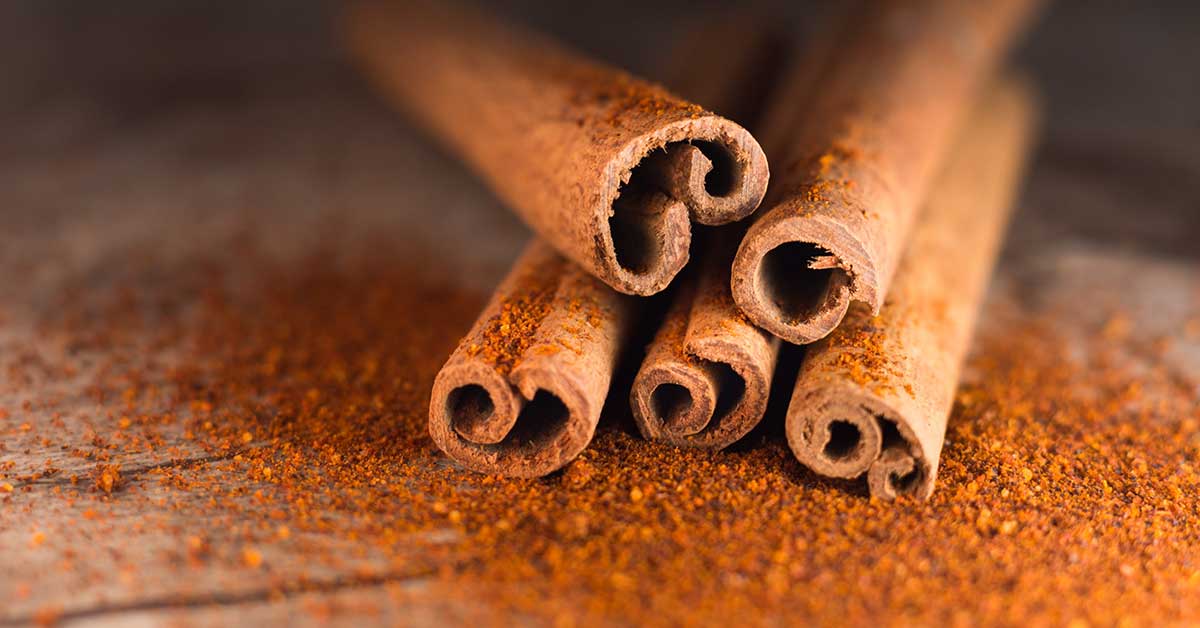
The food category averaging the foremost antioxidants is herbs and spices. In the duration of antioxidant bang for your buck, açai berries beat out other superstars, like walnuts, apples, and cranberries. Still, purple cabbage gets the most antioxidants per dollar for the most efficient bargain, followed by the spice cinnamon.
My Daily Dozen advises a minimum of 1 / 4 teaspoon of turmeric daily, together with the other (salt-free) herbs and spices you enjoy, and there are many reasons to include Cinnamon into your diet. The spice is an antioxidant powerhouse. By adding just a half teaspoon to your morning oatmeal, as an instance, you may bring the antioxidant power of your meal from 20 units to 120 units.
There are two main types: Ceylon and cassia, also related to bark. Within you. s., anything labeled “cinnamon” is maybe the less-expensive cassia. Sadly, cassia adds coumarin, a compound that will be toxic to the liver at high doses. Unless it’s clearly labeled “Ceylon cinnamon,” 1 / 4 teaspoon, even some times every week is also an excessive amount for tiny children, and a daily teaspoon would exceed the tolerable upper safety limit for adults.
Does switching to Ceylon provide the advantages without the risks?
Cinnamon has been performing the data recently thanks to recent information about one of its unions, coumarin. Coumarin displays toxic liver effects in animal models. It’s located in some vegetables, spices, fruits, and medicinal plants. With all the remaining rumors, and after receiving emails from parents and students who were using my on-line nutrition courses, i chose to demonstrate how Cinnamon was used safely. Don’t fret! The likelihood is, you and your family won’t kill this sweet spice that adds the most extraordinary richness and depth to any favorite beverages, dishes, and desserts. You would not want to miss out on the benefits of Cinnamon!
Health benefits

According to the U.S. National Library of Medication, Cinnamon helps treat muscle spasms, vomiting, diarrhea, diseases, respiratory disease, loss of appetite, and ED (ED).
Diabetes
Cinnamon may help improve glucose and lipids levels3 in patients with type 2 diabetes, in line with a study published in Diabetics Care.
The study authors concluded that consuming up to six grams of Cinnamon per day “reduces serum glucose, triglyceride, cholesterin, and total cholesterol in people with type 2 diabetes.” which “the inclusion of cinnamon within the diet of individuals with type 2 diabetes will reduce risk factors related to diabetes and upsets.”
A specific cinnamon extract may also reduce fasting blood glucose levels in patients, researchers reported within the European Journal of Clinical Investigation.
Anti-Cancer
Cinnamon slowed tumor growth in several animal models, although human studies haven’t been conducted yet. The spice inhibits the function of a molecule called NF-kappaB, which activates much cancer, causing genes. It may also block proteins that allow cancers to access our blood supply and spread throughout the body.
Helps lower sugar in diabetic patients
About two teaspoons of Cinnamon powder after food helps lower insulin resistance for diabetic patients and lets the hormone act appropriately. It also reduces pressure level, which further aids in its regulation of Type II Diabetes.
Cinnamon and weight loss
Cinnamon powder has high fiber content – consuming as little as a mutual teaspoon can hold you feel full for an extended time and help meet daily dietary fiber requirements.
The study has found that Cinnamon using assists in fat burning. You’ll be able to bog down weight increase if you routinely use Cinnamon as a part of your diet. Still, this does not mean you eat cinnamon whole, by itself or any of the high-calorie baked goodies linked to Cinnamon. You’ll be ready to include Cinnamon in your diet during a kind of recipe. Tadacip 20 and Cenforce 200mg are utilized to treat erectile dysfunction (impotence) in men.
Cinnamon packs an antioxidant punch.
Too many free radicals (or pro-oxidants) can result in oxidative stress within the body, linked to the onset of several serious diseases (like various cancers, cardiovascular disease, and neurological diseases) and accelerating the aging process usually.
The excellent news: Cinnamon happens to pack with antioxidants, which stabilize free radicals. In one investigation of antioxidant action in 26 various spices, Cinnamon got out on top, beating out “superfoods” like oregano. Even healthy, study reveals that the antioxidants in Cinnamon also are anti-inflammatory. These antioxidant and anti-inflammatory qualities likely play a job in Cinnamon’s other health advantages listed here.
It reduces the chance of diabetes.
Studies show that Cinnamon appears to stop and relieve metabolic syndrome, the cluster of factors—including insulin sensitivity, high resting glucose, pressure level, and an outsized waistline—that increase your heart condition and diabetes risk. There’s also evidence that eating a meal with Cinnamon can help your biological process what you’ve eaten and keep your blood glucose in restraint after the meal. Men with erectile dysfunction can use Aurogra 100 and Malegra 100 to help them get firmer and longer-lasting erections, given that you’re Physically stimulated.
Cinnamon might boost memory.
While the human subjects aren’t there yet, Cinnamon has promised to support the brain in an animal study. A 2014 study published within the Journal of Basic and Clinical Physiology and Pharmacology evaluated the spice’s effect on mice with dementia. The scientists gave the rodents 50, 100, and 200 mg doses of cinnamon bark (which Cinnamon springs from) then had them perform a water maze and visual perception tests. The mice that took the 100 and 200 mg doses outperformed the opposite group within the water maze test and better recognized the difference between familiar and new objects.




